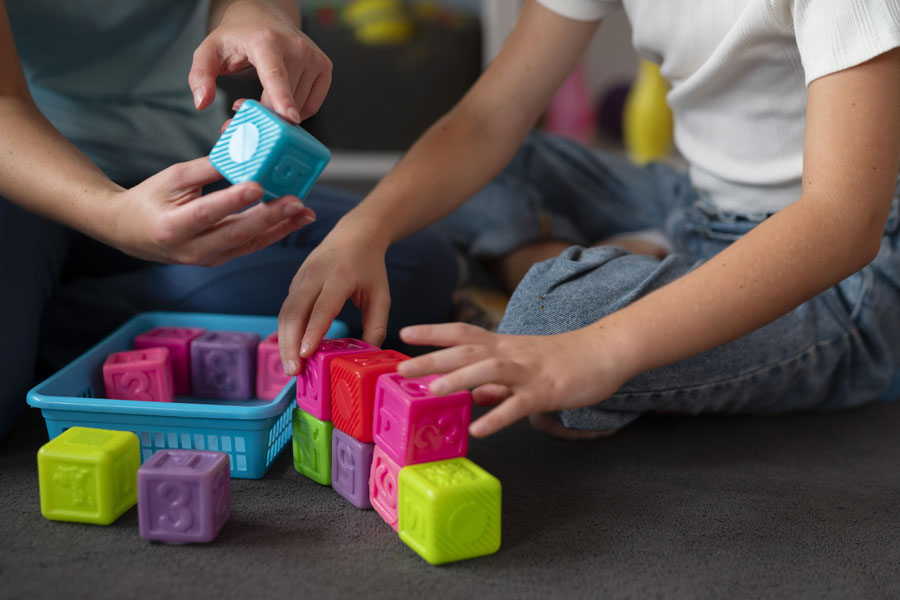The impact of Covid on teenagers and children has been a cause of concern for the parents. Recalling the year 2020 brings in an amalgamation of memories that were both fearful and saddening for many of us. The world encountered a season of pain, loss, grief, and anxiety. We had a lot of battles that we faced with respect to the loss of jobs, death rates, economy dropping. Along with this the COVID-19 crisis’ had a significant adverse effect on millions of people’s mental and emotional health.
This is especially true when it comes to the youth. Their everyday lives were affected, including their schooling, by isolation, lack of touch with peers, and for many, the loss of emotional and material security. Youths had a higher chance of developing depression, anxiety, and sleep problems due to this.
The pandemic became an added factor in the deterioration of Mental health illnesses preceding the negative impact of social media, and the increasing pressures of schooling and society.
Decline in Mental Health due to Pandemic
Some of the most important interactions that shape their present and future are those they have with their instructors and peers while they are in school. 37% of teenagers in high school had mental health problems without this interaction to help them.
The quick spread of COVID-19 also prevented many children from hanging out with their friends or taking part in extracurricular activities, in addition to the loss of school. This presented a further difficulty since many children lacked a means of healthy emotional expression in the absence of these constants in their lives.This resulted in repression of emotions, which frequently resulted in mental health problems.
The relationship between teenagers’ rates of suicide and children feeling attached to their school were the most horrifying discovery of all. Only 47% of young people felt a sense of connection to their school since learning took place primarily online throughout the epidemic.
Given that 13% of children attempted suicide because they felt disconnected from their school, this had implications for mental health. This was quite concerning when compared to the 6% of students who tried suicide while feeling attached to their institution. In essence, during the epidemic, the suicide rate among young people doubled.
How to overcome the impact of Covid on teenagers?
Confiding in Someone: Telling someone about your feelings is the first step in facing your challenges. Making the decision to confide in someone you love and trust can make all the difference in the world. Talking to a trusted adult like a parent or guidance counsellor at school can help in starting the healing process.
Confiding in caring, supportive people may help us build stronger social ties, overcome our fears of rejection, align our actions with our true selves, and get emotional relief—all of which are indicators of sound mental health.
Finding a way to express: Finding a technique to channel your emotions is another effective strategy for dealing with mental health issues. This could be
- engaging in your preferred pastime like involving more time in hobbies
- Participating in a sports team
- making or listening to playlists of music
- making works of art
Interacting with a practitioner: Things might sometimes become too heavy for us to carry alone. Here, getting expert assistance could be your best course of action. Everyone should consider this, including those who don’t believe they have a mental health problem.
Having a qualified expert you can talk to is always a good idea, no matter what is going on in your life. Nowadays, there are many places to find mental health specialists, which makes asking for assistance easier than ever.
Focusing on things we can control: Irrespective of the uncertainties we had to encounter, it is always healthy to think of things we can control on our own. Such keeping ourselves protected, eating heathy food and exercising.
Maintaining a healthy sleep cycle would also contribute positively on the mental health of an individual.
Helping others: It’s easy to become preoccupied with your own worries and fears during moments like this. We must take a moment to pause and keep in mind that we are all in this together despite all the reports of people fighting over the right to wear face masks or line up in front of gun shops to arm themselves.
Helping others may improve your own mental health and well-being in addition to the community you live in. A large portion of the suffering brought on by this epidemic is a result of feeling helpless. Being kind to others may give you a sense of control over your life and give it more meaning and purpose.
Even though youth mental health is declining, there is still hope. Despite the fact that young people generally have little control over their circumstances, many have risen to the occasion and are overcoming Covid by supporting others. This can lead to major developmental changes that guard against mental illness, along with making resilience training a regular part of school life and giving students opportunities to contribute. As a parent you may also consider the options child counselling with ANJ.

